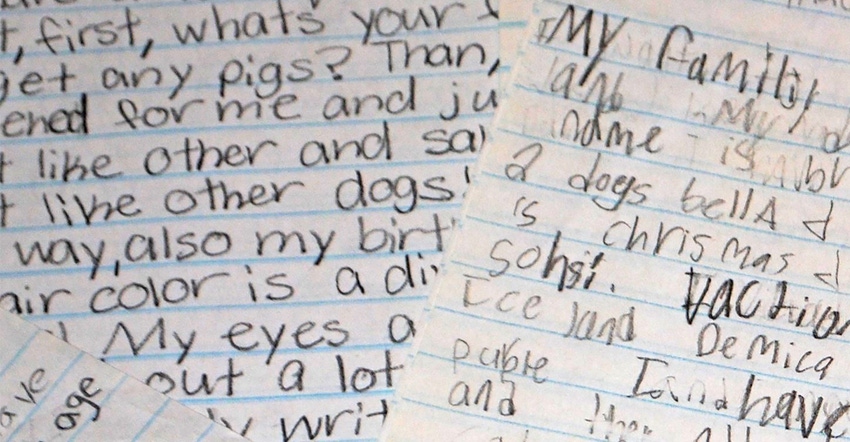
For years, farmers have been told that they need to share their own personal stories with consumers, to explain to new generations exactly what we do on the farm. No single program probably has done a better job of this than the Nebraska Farm Bureau Foundation’s Ag Pen Pal Program. For 30 years, farmers and ranchers have been sharing their stories with students.
“Farmers and ranchers have connected to bring a face to agriculture and built trusting relationships with consumers,” says Courtney Shreve, Nebraska Farm Bureau Foundation director of outreach education. “Annually, more than 250 farm and ranch volunteers participate in the Ag Pen Pal Program, impacting 6,250 students in kindergarten through eighth grade classrooms.”
The volunteers who participate are scattered across the state, and can be farmers, ranchers or agriculture industry members.
Sharing stories
The program offers a platform for producers to share their story. The basic requirement for program participants is for the volunteer to be in touch with their assigned classroom at least three times during the school year. The connection can come from handwritten letters, emails, video and even personal visits to the classroom.
“Many farmers and ranchers go above and beyond the requirements,” Shreve says. “Some farmers send samples of items they produce like an ear of corn or an ear tag from their cattle.”
Many of the families travel to the classroom to meet students. Several also video-chat with the class, to interact with students on a personal level. Some Ag Pen Pals also host the classroom on their farm or ranch bring agriculture to life, she says.
One family’s experiences
“Many students, even in Nebraska, are three to four generations removed from the farm,” says long-time Ag Pen Pal Karen Grant, who farms with husband Bruce, and their family, raising corn, soybeans, alfalfa and prairie hay, and operating a farrow to finish swine farm. The family has been a farmer participant in the Ag Pen Pal Program for many years.
“Students are hearing stories, but sometimes the information is not accurate, or it is biased against farming and ranching,” Karen Grant says. “We need to tell our story of what we are doing on the farm or ranch,” she explains. “Students need to know people are really out working with livestock, really planting crops and taking care of how much fertilizer is being used, and how irrigation is limited to what is needed for moisture. They need to hear from us that we care about the environment, the community and our neighbors.”
The Grants like to read farm-related books to their students, and they truly enjoy visiting students in their classroom. “We have had Pen Pals from farming communities, small towns and large cities,” Grant says. “We enjoy talking about our farm, the jobs we have, and what we get to do and what we love to do. I think we learn as much from them as they do from us.”
The Grants visit the classrooms together as part of their participation in the program. While this is not required of participants, it is a rewarding aspect that families enjoy.
“The students are very surprised that a husband and wife work together,” Grant says. “It is like we make a whole classroom of new friends each year.”
They also enjoy reading letters from the students and answering any questions they might have about farm life. “The kids need to hear the truth from a reliable person, and one who becomes their friend for the year,” she says. “The kids are taking the information we give them home to their own families, so we are not only communicating with the kids, but also their family members as well.”
Why get involved?
“This is an easy way to communicate with an audience that wants to learn from you,” Grant says. The farmer voice is a whole new aspect to these students, and it is one they may not have heard before.
“These kids may never get to experience riding on the back of a horse,” she notes, “so you can share with them what that is like.”
If a farmer offers a video of a virtual combine ride with the students, they can realize that each part of a combine has a purpose. The program, according to Grant, offers students a learning experience in subjects of math, science and history, for instance, through the insights of farmers and ranchers. “It opens their minds to new ways of living,” she adds. “And we realize the kids are soaking up what they are being taught.”
If you’d like to participate or learn more about the program, contact Shreve at [email protected].
About the Author(s)
You May Also Like






